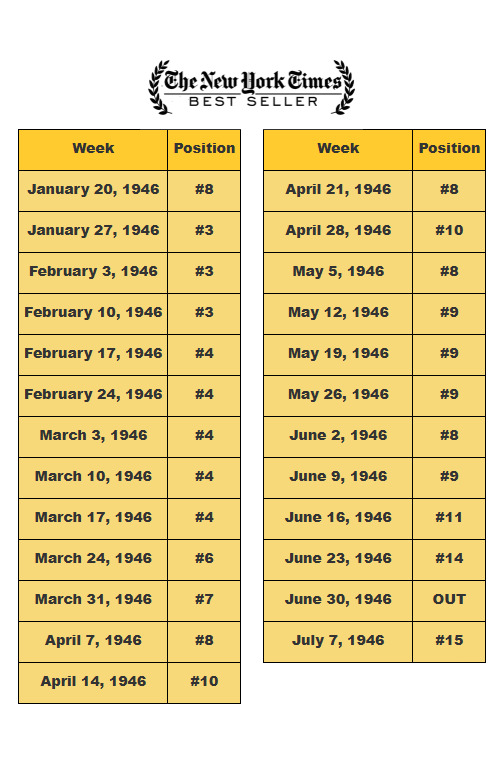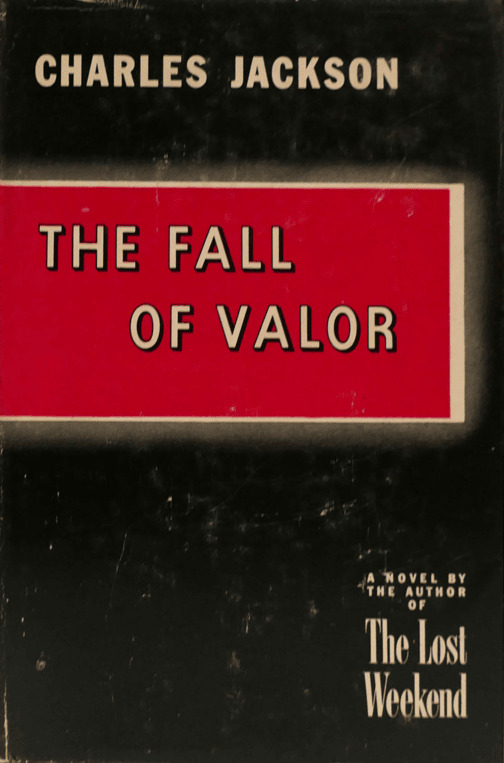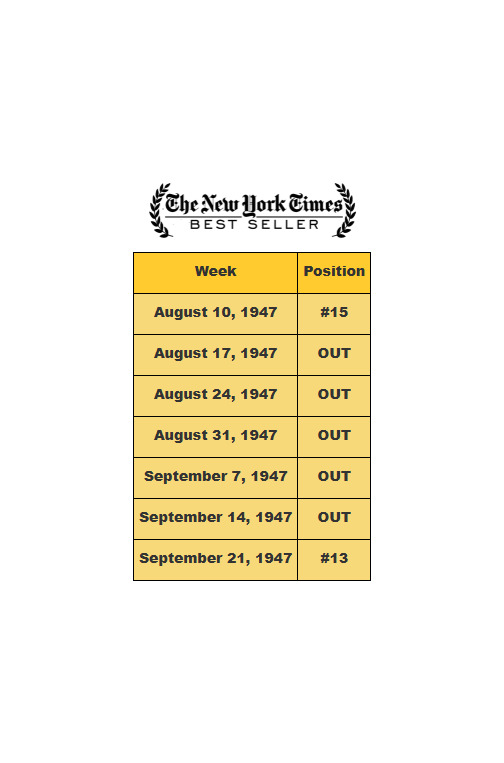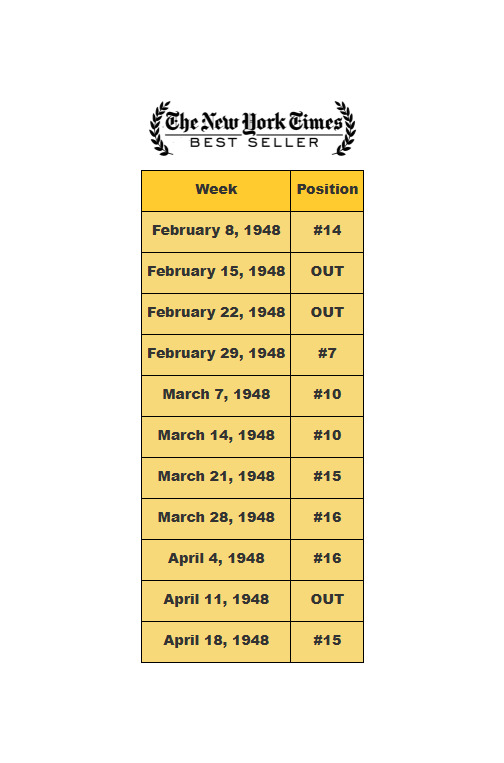#Class of 1948
Explore tagged Tumblr posts
Text

Adeline Char, BJU Class of 1948.
Adeline Len Chin Char was born in Honolulu, Hawaii on January 3, 1924. She passed peacefully and went to the Lord on April 11, 2024. She was 100 years old. Her Memorial Services were held on April 15, 2024 at Singapore Funeral Palour, and she was buried on April 16, 2024 at the CCK Christian Cemetery in Singapore. Adeline's parents were Yuk Tong Char and Annie Ho Char. Her siblings were Norman W.S. Char, Bernice Char Choy, Albert F. L. Char and Bernard F. H. Char. She is survived by Albert F. L. Char.
After graduating in 1948 from Bob Jones University in Greenville, South Carolina, Adeline served as Director of Kindergarten and Christian Education for Kaimuki Community Church. Upon the invitation of Rev. K. C. Quek, Adeline left Hawaii in 1952 as a missionary for Singapore. She planted three churches in Malaysia for Hakka Chinese and one church in Indonesia for abused women. In addition to the churches, she opened several schools and nurseries for young children. In 1992, Christian Life Publishers published her book, Call To Asia, which was a collection of stories based on her experiences as a missionary in Singapore, Malaysia, Indonesia, China and Hong Kong.
#Bob Jones University#BJU Alumni Association#Obituary#BJU Hall of Fame#Adeline Len Chin Char#Class of 1948
1 note
·
View note
Text

Class photo, 1948, Sweden.
87 notes
·
View notes
Text
Pro-Israel counter-protester goes on a racist rant about Muslims then tries to justify the ethnic cleansing of 750,000 Palestinians in 1948 (referred to as the Nakba)
#israel#israhell#videos#video#class war#palestine#gaza#rafah#free palestine#freepalastine🇵🇸#nakba 1948#nakba day#nakba#ausgov#politas#auspol#tasgov#taspol#australia#fuck neoliberals#neoliberal capitalism#anthony albanese#albanese government#save palestine#i stand with palestine#palestine fundraiser#all eyes on palestine#free gaza#gaza genocide#gaza strip
22 notes
·
View notes
Text

"Alan Shepard's 105th Sortie with F4U-4 on USS FRANKLIN D. ROOSEVELT (CVB-42)."
Date: October 1948
Naval History and Heritage Command: link
#Vought F4U Corsair#F4U#fighter#USS Franklin D. Roosevelt (CVB-42)#USS Franklin D. Roosevelt (CV-42)#USS Franklin D. Roosevelt#Midway Class#Aircraft Carrier#United States Navy#US Navy#USN#Navy#October#1948#my post#post war
208 notes
·
View notes
Text

USS TEXAS (BB-35) being escorted by three tugs and towed by another out of frame.
Note: she is painted on Haze gray and her one surviving propeller on deck.
Photographed on March 31, 1948.
Battleship Texas Foundation Archives: 2023.1001.19
#USS Texas (BB-35)#USS Texas#New York Class#Battleship Texas#Dreadnought#Battleship#Warship#Ship#United States Navy#U.S. Navy#US Navy#USN#Navy#March#1948#Texas#my post
41 notes
·
View notes
Text
my god i just saw the photo of a palestinian man who was detained and tortured (for israel these two seem to nearly always go hand in hand) in south gaza and when he was released and came back his wife found a big star of david CARVED into the skin of his back…. It should be illegal for Israel to use this symbol at this point tbh they‘ve hijacked it and turned it into a symbol of hate by desecrating now not only bombed neighborhoods and destroyed buildings in gaza all the while using it on the flag all these atrocities are committed under now they are even desecrating Palestinian bodies with it. It can’t be turned into something bad. It’s like the swastika originally being a good positive symbol that dates back to around six thousand years ago and originally standing for well being and good fortune (still does in other parts of the world!) before it was hijacked by the Nazis in the 1930s/40s and turned into something so hateful and horrible that the symbol now is forbidden (in Germany at least) because it was so appropriated and misused. I don’t think it should take more than two braincells to keep apart Judaism and Zionism the latter under which all those atrocities really are committed but I just feel the need to call into remembrance that this is not happening in the name of „all jews“ even tho some people like to twist the narrative that it does. I read a post by a jewish girl who also practiced the religion proudly and who stood firm against israel, and she said she loved wearing her star of david necklace but now she is so disheartened bc of how israeli soldiers have desecrated gaza with it on many occasions. when i see this symbol i think of people like her and what i learned about the meaning of „tikkun olam“ and „tzedek“ which is something even i as an atheist get inspired by (as should everyone) and that it’s sooo antithetical to what israel is doing? like seriously they are doing the exact opposite?
#i just REFUSE to buy into that narrative that Judaism is forcibly »connected« to that state in its current form#and the way it has existed since 1948#i refuse to believe judaism includes a facist two-class society and that that’s the way to keep people safe#free gaza#free palestine
4 notes
·
View notes
Note
Didn’t know you were a Zionist. That sucks.
I'm not lol. Palestinians deserve better than other countries taking advantage of them to further goals of Arab nationalism and Pan-Arabism at the expense of the Palestinian people. Jews shouldn't feel so unsafe in countries around the world that they have to go and make their own country. Leaving when people are saying "we're going to come and kill everyone in our path so get out of the way if you don't want to die" is understandable, particularly if everyone is expecting the people defending to lose (1948, especially 1967). It's a bit hard to welcome people back when they refuse to negotiate with or recognize you. That also makes it hard to make peace with the same people, particularly when people who do try often get shunned, harmed, or killed. People who were forced to leave (Palestinians not mentioned above, Mizrahi Jews) mix up narratives on all sides on where were from, why they moved, how "willing" they were to move, etc.
Israel absolutely does have illegal settlements in the West Bank and treats Palestinians worse than how people should be treated. I know that's not what this ask was about though. Multiple groups of people can be from the same region. October 7 wasn't resistance. Israel's response was beyond disproportionate. The Israeli hostages weren't treated well and at best you're ignorant to believe otherwise. I'm not apologizing for caring about people.
#I took a class on Israeli foreign policy in 2020 and the professor was Israeli#He had many criticisms of how Israel handled many things (not just Palestinians) but it's difficult when no one is willing to compromise#In his words one of the issues with peace in the Middle East is that 'no one wants to be a sucker'#Semi related: if you genuinely think the United States supported Israel starting from when it was founded in 1948 then get help
1 note
·
View note
Text
How embarrassed do you think Cambridge University still is over the fact that it took them nearly 30 years longer than Oxford to give women degrees? It should be a lot, like they should definitely have an inferiority complex about it.
#Cambridge University#1948 ffs#Nearly 100 years of letting women pay to take classes but refusing to give them a nice piece of paper to acknowledge their efforts#That is e m b a r r a s s i n g
1 note
·
View note
Text
VF-5A “Screaming Eagles” FJ-1 Fury BuNo 128363, S-114, aboard the USS Boxer (CVA-21), March 10, 1948

130 notes
·
View notes
Text

Delores Briggs Forehand joined the Heavenly choir of angels on April 25, 2023 at the age of 95. Born in Portsmouth, Ohio in 1927 to parents George and Mabel Briggs. Delores was predeceased by her parents; husbands, Firman Cuthriell, Jr. and Willis Weymouth Forehand; and son, Terry Wayne Cuthriell.
She is survived by her daughter, Denise Yvonne Forehand and her children, Jessica, Travis and Brett; a daughter-in-law, Deborah Cuthriell and her children, Christopher, Rachel, Sarah, and Hannah; 19 great-grandchildren from both families; a loving sister, Nancy Carolyn Briggs Vaughan; nieces, Debbie, Donna and great-niece, Kaleigh Mabel; and a nephew, Tom Forehand.
Delores was a graduate of Deep Creek High School and Bob Jones University. She pursued music studies at Southern Baptist Seminary. Her voice teacher, Nora Reynolds, was a great friend and mentor.
Delores was a pioneer in Christian Broadcasting when it began as WYAH-TV in the 1960s and appeared weekly on her own program for 8 years. She recorded several albums and her music can be found world-wide on Amazon and Spotify. She served as director of music and education in North Carolina and Virginia.
Delores was a long-time active member of Deep Creek Baptist Church in Chesapeake and loved teaching God's word and singing sacred music. She was truly loved by her family and so many friends within the Deep Creek community.
Funeral services will be held at Deep Creek Baptist Church on Saturday, April 29, at 1 p.m. The family will receive friends the hour before the service at the church. Burial will follow in Olive Branch Cemetery. In lieu of flowers, please donate to the Foodbank of South Hampton Roads. Sturtevant Funeral Home, Portsmouth Blvd. Chapel is assisting the family.
#Bob Jones University#BJU Hall of Fame#2023#Obituary#BJU Alumni Association#Class of 1948#Delores Briggs Forehand
0 notes
Note
Genuine question, why do think the people protesting Netanyahu aren't Israeli? You realize there are plenty of Israelis who despise and hate what Netanyahu and his government has done? Why do these people have to be socialist to get anything done? I don't get bashing normal people who are fed up and are trying to make their voices heard?
Was Netanyahu the Prime minister in 1948 when the Nakba happened? No. Was Netanyahu the PM in 1967 when “Israel” occupied even more territories? No. Was he the PM for the 62 years of occupation during which he was not the PM?
The majority of the settlers who are protesting against Netanyahu are not protesting for the liberation of Palestine but to go back to the previous status quo. They are not protesting because they care but because they are seeing that Netanyahu makes it impossible for them to pretend to be good guys like they used to.
82% of the Israelis are in favor of ethnic cleansing, they are okay with the forced expulsion of every single Palestinian from Gaza. Given the number of Palestinians with the Israeli citizenship (a second class citizenship) 82% means that pretty much EVERY SINGLE Israelis who is not actually a 1948 Palestinian is in favor of ethnic cleansing Gaza. More than half (56%) of the Israelis are in favor of the ethnic cleansing of ALL Palestinians including those who have the Israeli citizenship. Again if you take into account the number of Palestinians with the citizenship and remove them from the 44% who are against ethnic cleansing (because they obviously don’t want to be forced to leave Palestine), it goes from 56% to 70%. 70% of the Israelis who are not actually 1948 Palestinians are in favor of the ethnic cleansing of every single Palestinian from ALL of the territory.
Lastly, the very small minority of settlers who actually want change and want a free Palestine where they could live alongside Palestinians with equal rights for everyone, explained that they have no power and represent at most 0.1% of the population. They even freaking asked to NOT be used as a way to absolve all of Israel of its crimes since it was created by colonizers.
Netanyahu is not the problem. He is a piece of shit but he is only a symptom of the bigger problem that is a colonial society. The problem is settler colonialism. The problem is the fact that “Israel” exists on stolen land and required the forced dispossession and forced displacement of Palestinians since day one.
671 notes
·
View notes
Text

#nakba 1948#nakba 2023#nakba day#al nakba#nakba#161#1312#ausgov#politas#auspol#tasgov#taspol#australia#fuck neoliberals#neoliberal capitalism#anthony albanese#albanese government#eat the rich#eat the fucking rich#jewish antizionism#class war
3 notes
·
View notes
Note
why do zionists always assume its antisemitic to think that zionism a settler colonial idea
Modern Zionists aren't actually well-read into their own history. I could invoke the likes of Theodore Herlz, Ze'ev Jabotinsky, David Ben Gurion, and many other political Zionists and how they were ardent supporters of settler colonialism, yet it wouldn't get through their head, because they genuinely believe the land of Palestine is their right to claim, despite the people inhabitating the area. But to claim that the establishment of the Settler state was necessary due to antisemitism is not correct.
The pogrom of the Jewish people in the Pale of Settlement in Imperial Russia resulted in the mass displacement of Jews. But most Jews did not flee to Palestine, but to the US and Western Europe to live relatively better lives, due to the French revolution and so on. They had no desire whatsoever to move to Palestine due to its harsh climate and environment. Although the repression of Jews in the 19th century added to Zionism's appeal, Zionism did not emerge because of it as is often portrayed.
Jewish historian Michael Stanislawiski explains:
The first expression of this new ideology were published well before the spread of the new anti-semitic ideology and before the pogroms of the ealy 1880s. The fundamental cause of the emergence of modern Jewish nationalism was the rise, on the part of Jews themselves, of new ideologies that applied the basic tenets of modern nationalism to the Jews, and not a response to persecution.
-- Zionism, a short introduction (Stanislawski, 2017)
As was the case for that time, the doctrine of nationalism became prevalent across Europe. Many versions of it gained hold of European intellectuals and the upper-classes. One of these were ethnonationalism, which emphasised common ancestry. Such a view was popular among Germans, Hungarians, Russians, Poles and etc, who saw their "tribes" as being distinct, and therefore needed to be preserved from foreign threats. Zionism would mirror some of these aspects, which was prevalent in Eastern Europe. The founding father of Revisionist Zionism (and the precursor to the Likud party), Ze'ev Jabotinsky stated:
"The creation of a Jewish majority, was the fundamental aim of Zionism, the term "Jewish State", means a Jewish majority and Palestine will become a Jewish country at the moment when it has a Jewish majority".
-- Zionism, and the Arabs, 1882-1948 A study of ideology (Yosef Gorny, 1987)
However, there was another ideology emerging which was far more popular among the oppressed Jewish people, which would propell them to emancipate themselves where they lived. Revolutionary Socialism.
According Ilan Pappe, the doctrine of Zionism was vehemently opposed by Jewish leaders all around Europe on the basis of Talmudic violations, the rise of revolutionary socialism and the rise of Jewish assimilationism. Additionally, in a conference in Frankfurt, rabbis decided to omit the mentioning of "the return" from Jewish prayers as a reaction to Zionism. However, Zionism would face intense opposition from Socialist Jews, especially the Bundists, who openly declared Zionism to be anti-Socialist, opportunistic and reactionary. Zionism was an alien idea, and revolutionary socialism emphasised the importance of the liberation of Jews where they lived, resulting in an ideological feud between the Bundists and Political Zionists. Even the likes of the Chaim Weizmann, the first president of the Settler state, and David Ben Gurion, the first PM of the settler state, would condemn the Bundists for their opposition to Political Zionism.
731 notes
·
View notes
Text

USS HUNTINGTON (CL-107) underway at sea near Capetown, South Africa.
Note: Curtiss SC-2 seaplane on her catapult.
Photographed on October 15, 1948.
U.S. Naval History and Heritage Command: NH 98942
#USS Huntington (CL-107)#USS Huntington#Fargo Class#Light Cruiser#Cruiser#Warship#Ship#United States Navy#U.S. Navy#US Navy#USN#Navy#Capetown#South Africa#October#1948#my post
64 notes
·
View notes
Text
The Early Gay Best Sellers, 1930s–1940s

Created in 1931 as a short and somewhat irregular ranking, The New York Times Best Seller list has become the leading report on what American readers are currently consuming. If a book makes the list, that basically means it managed to break into the literary mainstream sphere, with all the glory that such a thing can bring.
The list is also a simple way to identify the rise of certain trends and genres. And since there doesn’t seem to be a comprehensive examination of this when it comes to gay literature, I decided to take it upon myself to produce something like that.
This is the first part of a series of posts that attempt to track the slow rise of gay fiction in the American imaginary. My criteria for selecting the works was the presence of a gay/non-straight male protagonist, since that's the niche I specialize in. This means that negative characterizations can also be found here — although I would say that the vast majority of the books featured in these posts at least try to be sympathetic to homosexuals.
Only two pre-World War II novels managed to meet the criteria, which shows how any assertive textual instance of homosexuality could be highly controversial at that time. The publication of the first Kinsey report (Sexual Behavior in the Human Male, in 1948) and the advent of war clearly brought a loosening of norms and some new perspectives on the matter, as shown by the sudden boom of titles — some of which would eventually become classics. War creates many homosocial spaces, after all.
Serenade (1938) by James M. Cain


A formerly gay opera singer falls in love with a female Mexican prostitute, which leads to all sorts of shenanigans: that's the basic premise of the wacky and controversial Serenade. The way Cain develops many of the novel's themes can certainly be considered dated by our modern standards: for example, he bases his characterization of the protagonist on a pseudoscientific theory of the time, which claimed that homosexual singers were artistically deficient (!).
Cain's debut novel, The Postman Always Rings Twice (1934), was instantly hailed as an American classic, which probably explains why he was able to get away with such a risqué plot in his follow-up work. Although Serenade sold moderately well, it fell short of the author's and his publisher's expectations. A film adaptation loosely based on the novel was released in 1956, without any trace of the original story's homosexual themes.
The Lost Weekend (1944) by Charles Jackson


Largely inspired by the author's own experiences, The Lost Weekend is a sorrowful tale about five days in the life of an alcoholic writer named Don Birnam. Birnam is described as a "crypto-homosexual": flashbacks show his lifelong struggle with same-sex attraction, one of the main factors that led him to addiction. The novel became a big success, selling over half a million copies in the first five years after its release.
Much like what happened with Serenade, The Lost Weekend’s classic film adaptation — which won the 1946 Academy Award for Best Picture — eliminates any mention of homosexuality.
Brideshead Revisited (1945) by Evelyn Waugh


This overview of the rapidly declining world of the British aristocracy proved so popular with American readers that it even surprised Waugh himself. The description of the relationship between Charles Ryder and Sebastian Flyte comes very close to being explicitly homosexual, but even then, there’s Anthony Blanche’s open flamboyance to make the whole thing clear.
The newly expanded best seller list made it easier for Brideshead Revisited to make a very solid 25-week run. MGM toyed with the idea of a film adaptation in the late 1940s, but ultimately Waugh decided it wasn't worth the trouble.
The Fall of Valor (1946) by Charles Jackson


After the success of The Lost Weekend, Jackson decided to go even further with his sad homosexual narratives: The Fall of Valor is a story about a closeted middle-class man in a loveless marriage and his infatuation with a handsome Marine.
It is surprising how little is said about this title, considering it's probably the earliest example of an actual "gay novel" to appear on the best seller list. Its success is truly remarkable and probably made it easier for other explicitly gay-themed books to be published.
Knock on Any Door (1947) by Willard Motley


Knock on Any Door follows the life of young Italian hoodlum Nick Romano as he struggles to survive on the streets of Chicago. By 1950, the novel had already sold 350,000 copies.
To make money, Nick allows himself to be picked up by “phonies” (i.e., homosexual men) and even befriends one of them. As usual, its 1949 film adaptation removed these kinds of details.
The Sling and the Arrow (1947) by Stuart Engstrand


Perhaps the clearest example of negative characterization found in this entire research, The Sling and the Arrow serves more as a cautionary tale than a plea for tolerance: It is as if Engstrand tried to instill every fatalistic stereotype — not just gay ones, but also some about transgender people — into the protagonist, another closeted middle-class man. The novel’s sensationalist approach gave it enough visibility to achieve best seller status.
The Gallery (1947) by John Horne Burns


The Gallery is the debut novel by Burns, a World War II army officer. It consists of 17 interconnected stories about life in Allied-occupied North Africa and Naples, featuring multiple characters. Three of these stories — "Momma," "The Leaf," and "Queen Penicillin" — feature gay soldiers.
Although the novel wasn’t a phenomenal success with the general public, it was lauded by critics and ended up being a finalist for the Pulitzer Prize, which gave it some longevity. By September 1953, its paperback edition had sold nearly half a million copies.
The City and the Pillar (1948) by Gore Vidal


The City and the Pillar wasn't only a literary breakthrough but also the explosive entrance of one of the most prominent and controversial mid-century intellectuals of the United States. While the mere presence of a sexually active homosexual protagonist was shocking in itself, what is truly remarkable here is the introduction of a comprehensive depiction of the gay subculture to a broad audience — perhaps for the first time ever. The novel sold nearly 30,000 copies in a three-year period.
Vidal took some flak over the title — while The City and the Pillar made its best seller list, The New York Times refused to advertise the novel — but, as had become his wont, he simply brushed it off and moved on. His high-profile presence meant that the American media simply could no longer ignore the existence of homosexuality.
Other Voices, Other Rooms (1948) by Truman Capote


Just a week after The City and the Pillar debuted, another breakthrough hit the best seller list: a coming-of-age story about a lonely, effeminate Southern boy inspired by Capote’s own life, Other Voices, Other Rooms had a very similar run to Pillar. And like Vidal, Capote also became a public figure and is now considered one of the founders of the New Journalism style.
The first edition of Other Voices, Other Rooms reportedly sold 26,000 copies. 20th Century Fox bought the rights to the novel before it even hit the shelves, but a film adaptation was never made.
#series: the early gay best sellers#literature#lit#gay literature#lgbt literature#lgbtq literature#gay books#gay fiction#bookblr#history#gay history#lgbt history#lgbtq history#james m. cain#charles r. jackson#evelyn waugh#willard motley#john horne burns#gore vidal#truman capote#the lost weekend#brideshead revisited#gay#lgbt#lgbtq#lgbtqia#30s#40s#1930s#1940s
136 notes
·
View notes
Text
what i read in 2024: best of, part two
(previous editions) bold = favourite
class, race, gender, & sexuality
the crash of the hammer (usa)
my own personal hell: thoughts on hazbin hotel
the devil went down to georgia (usa)
'we spoke english to set ourselves apart': how i rediscovered my mother tongue (nigeria)
the shapes of silence
laws once prevented aubrey lynch from entering kalgoorlie's town centre. he believes truth-telling is the way forward (australia)
politics & current affairs
the road to 1948 (palestine, interactive)
'for me, there was no other choice’: inside the global illegal organ trade
the cement company that paid millions to isis: was lafarge complicit in crimes against humanity? (france)
how 3m executives convinced a scientist the forever chemicals she found in human blood were safe
'machines set loose to slaughter': the dangerous rise of military ai
other
'look, they're getting skin!': are we right to strive to save the world’s tiniest babies?
spreadsheet superstars (interactive)
the great abandonment: what happens to the natural world when people disappear? (bulgaria)
my family and other nazis
inside snapchat's teen opoid crisis
#studyblr#studyspo#academia#productivity#bookblr#university#reading list#reading lists#essays#myresources
150 notes
·
View notes